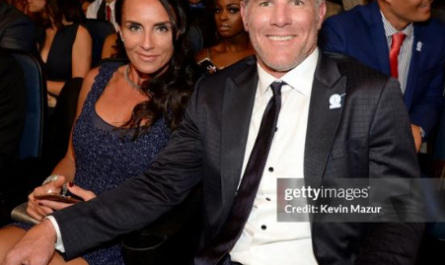Touchdown for Rodgers: Decoding his Brand Playbook
When you think of Aaron Rodgers, what comes to mind? For many, it’s likely his impressive resume as an NFL quarterback – a Super Bowl championship, four MVP awards, and countless thrilling plays. But Rodgers has also cemented himself as a cultural icon and highly bankable celebrity through the development of a powerful personal brand.
Over the past decade, Rodgers has transcended the football field to become a mainstay in commercials, endorsements, and pop culture conversations. But how exactly did he build this brand and what strategies has he employed? Let’s take a closer look at Rodgers’ brand playbook and the key ingredients that have helped propel his name and likeness far beyond Lambeau Field.
The State Farm Shuffle
Undoubtedly, one of the biggest drivers of Rodgers’ brand has been his long-running partnership with insurance giant State Farm. For nearly 10 years starting in 2011, Rodgers’ witty and charming persona was on full display in a series of State Farm commercials that featured him interacting with State Farm agent Jake from State Farm.
The ads immediately resonated with audiences thanks to Rodgers’ comedic timing, down-to-earth personality, and ability to poke fun at himself. Whether pretending to be an insurance agent himself or teaming up with Jake for zany adventures, Rodgers came across as extremely likable and relatable. His humor and charisma made him appealing to both diehard football fans and casual viewers.
The State Farm partnership was a win-win – it boosted Rodgers’ profile while humanizing one of the biggest brands in insurance. The commercials received massive airtime during NFL games and other televised events, further growing Rodgers’ name recognition. By the late 2010s, it wasn’t a stretch to say Rodgers was almost as well known for his State Farm ads as his play on the field.
The association with such a major brand served as Rodgers’ coming out party to mainstream popularity. It demonstrated his appeal and marketability extended far beyond just sports. His role in the State Farm commercials was a key first step in building an all-encompassing celebrity brand, as Rodgers seamlessly blended football success with mass marketing appeal.
Branching Beyond Football
While State Farm was Rodgers’ marquee endorsement, it was just one piece of his brand diversification strategy. He partnered with numerous other companies, dabbling in industries from apparel to dining to prove he was more than an athlete.
For example, Rodgers appeared in ads for athletic brands like Adidas early in his career. This aligned with his image as a elite quarterback known for his athleticism, speed, and throwing accuracy. He also did spots for upscale clothing company Izod, hinting at his sophistication and crossover popularity.
Rodgers also lent his face to non-endemic companies. He starred in commercials for insurance provider Progressive and restaurant chain Olive Garden. These demonstrated his brand appeal reached far beyond just traditional football demographics. Whether selling sports apparel or pasta dishes, Rodgers connected with a wide range of potential customers.
Branching into other business sectors showed Rodgers’ versatility and willingness to take calculated risks. It established him as a true celebrity rather than just an athlete doing sports endorsements. His diverse brand partnerships underscored how he transcended the gridiron to become a pop culture figure of interest well beyond football fandom.
The Value of Success
Of course, none of Rodgers’ brand building would have been possible without the on-field production and accolades. His championship pedigree and MVP-caliber play served as the foundation for all other aspects of his celebrity. Winning breeds fame and marketability that directly boosts an athlete’s endorsement potential.
Rodgers delivered time and again when the stakes were highest. His clutch plays and Super Bowl XLV winning drive against the Steelers etched his name in Packers lore. His MVP awards in 2011, 2014, 2020 and 2022 proved his greatness was no fluke but rather sustained elite performance year after year.
The championships and individual honors translated to a rock-solid reputation as a “winner.” Being associated with brands meant linking to a proven champion, injecting a sense of credibility. Rodgers’ success stories became part of his brand identity and personal story that companies wanted to tap into.
Fans respected Rodgers for grinding out victories. His teammates and coaches praised his tireless work ethic and leadership intangibles off the stat sheet. This translated to trust from partners, who felt confident investing in a proven commodity. Rodgers’ on-field production was the fuel powering all other aspects of his celebrity brand machine.
Crafting a Careful Persona
While talent and accolades opened doors, Rodgers understood the importance of crafting the right public image to maximize his potential. Beyond highlight reels, he had to connect with audiences on a personal level to build true crossover appeal.
Rodgers came across as thoughtful, well-spoken, and humble in interviews. He avoided playing into stereotypical athlete bravado or brashness. Instead, Rodgers emphasized his intellectual curiosity, love of culture, and down-to-earth Midwestern roots. He was quick with wit but also showed emotional intelligence discussing deeper issues.
This cultivated perception of Rodgers as more than just a “jock” – he seemed multi-dimensional with broad interests. He didn’t shy away from voicing opinions but did so respectfully without controversy or hot takes. Rodgers balanced confidence with a likeable everyman charisma that resonated.
Off the field, Rodgers kept a low-key image. He wasn’t one for extravagant parties or tabloid fodder, instead prioritizing family, philanthropy, and low-key hobbies like golf. On social media, he projected an approachable persona sharing everyday moments rather than flaunting a lavish lifestyle.
Rodgers understood the importance of controlling his narrative and avoiding anything too flashy that could compromise his brand. His carefully crafted public image emphasized authenticity, substance and character – traits that translated well for major partners.
Navigating Controversy
Of course, even the most strategically built brands can face hurdles. In 2021, Rodgers’ anti-vaccine stance amid the Covid-19 pandemic resulted in significant backlash. He misled the public about his vaccination status and broke protocols, overshadowing his on-field accomplishments.
This controversy damaged Rodgers’ wholesome image to some degree. It called into question his judgment and cast him as indifferent rather than empathetic amid a public health crisis. State Farm ended their long partnership, citing a desire to “move in a different direction” though many saw it as distancing from any vaccine controversy.
While still playing at an MVP level, the controversy marked the first real blemish on Rodgers’ previously polished brand identity. It showed even the craftiest of celebrity brands remain vulnerable if an athlete’s actions seriously clash with mainstream sentiment. Rodgers’ stance polarized public opinion and highlighted the tightrope all celebrity brands must walk.
The incident served as an important lesson – personal brands, no matter how carefully constructed, can face turbulence if not adequately adaptable. Rodgers may have lost a primary partnership, but his talent and past image rehabilitation efforts have helped him retain other endorsements. Ongoing performance will be key to winning back full trust while avoiding further divisive topics.
Lessons from the Playbook
Looking back, Rodgers’ journey illuminates important principles for building a powerful and sustainable personal brand:
– Capitalize fully on athletic success through elite performance and championships. This forms the core brand identity.
– Leverage natural charisma and personality through strategic partnerships that highlight likability.
– Branch into diverse sectors to prove versatility and crossover appeal beyond just the sport.
– Carefully craft a public image emphasizing substance, character and authenticity to connect.
– Remain adaptable, avoid controversy and acknowledge when viewpoints clash with the majority sentiment.
– Sustain elite play to maintain relevance and credibility even amid bumps in the personal brand road.
While recent events showed no brand is invulnerable, Rodgers’ playbook demonstrates how maximizing on-field success, likability, versatility and image can help athletes achieve true celebrity status. His journey illuminates valuable lessons for any public figure seeking to build an impactful and enduring personal brand.



